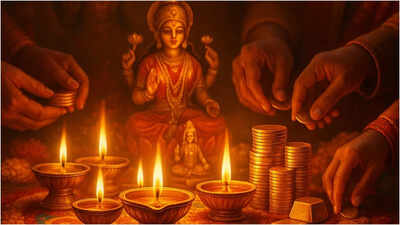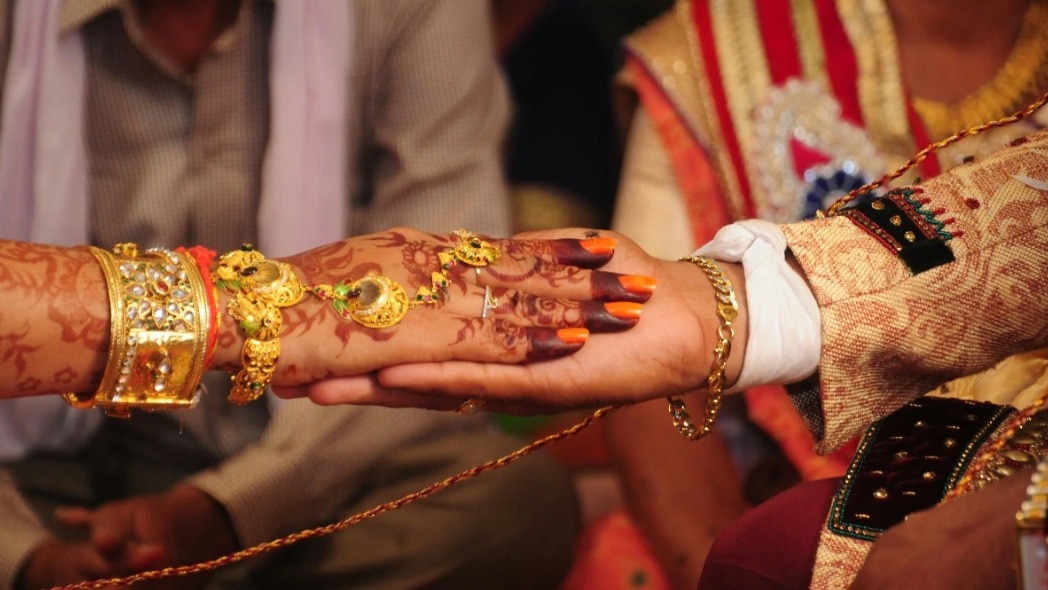ARTICLE AD BOX

As Diwali (Deepavali) 2025 approaches, homes across India are preparing to glow with the light of diyas — the symbol of purity, hope, and divine energy. But beyond their aesthetic charm, the oil used in these lamps carries deep spiritual and astrological meaning.
According to traditional beliefs, each oil has its own vibration and energy that influences prosperity, peace, and protection within a household.Here’s a look at the most popular oils for lighting diyas and their significance in this festive season.
आचार्य विक्रमादित्य से जानिए | दीवाली पूजा की सही विधि और यम दीपक का चमत्कार | Diwali 2025
Ghee (Clarified Butter): The Purest and Most Auspicious Choice
Ghee is regarded as the most sacred and auspicious fuel for lighting diyas. It represents sattva guna — purity, wisdom, and positivity. Diyas lit with ghee are believed to attract divine vibrations and remove negative energies from the surroundings.Because ghee comes from cow’s milk, it is considered a sacred offering and is traditionally used during pujas and rituals dedicated to deities. Ghee diyas burn with a bright, steady flame and minimal smoke, symbolizing the light of knowledge and the blessings of prosperity.For Diwali night, especially during the Laxmi Puja, lighting at least one ghee diya is recommended to invite wealth and divine grace into the home.
Sesame Oil (Til/Gingelly Oil): The Protector and Cleanser
Sesame oil is another widely used choice, known for its grounding and protective energy. It is believed to dispel negativity, purify the aura, and balance the mind.Astrologically, sesame oil is associated with Lord Shani (Saturn) and is used to counter doshas and remove the effects of negative planetary energies. On the second day of Diwali, also known as Yama Deepam, a diya filled with sesame oil and placed facing south is traditionally lit to honor Lord Yama, the god of death, and to seek protection for the family.Sesame oil produces a long-lasting flame and is ideal for outdoor diyas or lamps meant to burn through the night.
Mustard Oil (Sarson): The Flame of Strength and Courage
Mustard oil has been a traditional choice in many North Indian households for centuries. Known for its bright flame and distinct aroma, it is believed to drive away negative energies and evil spirits.It is particularly associated with strength and vitality — the qualities that light up life after darkness.
Mustard oil diyas are also considered effective for lighting pathways, entrances, and courtyards during Diwali night, symbolically guiding Goddess Lakshmi into the home.
Coconut Oil: The South Indian Symbol of Purity and Prosperity
In South Indian homes, coconut oil holds deep spiritual importance. It is considered a pure and sattvic substance that enhances peace, harmony, and marital happiness.Coconut oil diyas burn cleanly, with a soft, serene light that represents purity of thought and intention.
They are often used in temples and during Lakshmi Puja, as coconut itself is a sacred offering symbolizing selflessness and devotion.Lighting diyas with coconut oil is believed to attract prosperity, good fortune, and emotional balance.
Pancha Deepam Oil: The Blend of Five Sacred Oils
A traditional blend called Pancha Deepam Oil is considered especially auspicious for major festivals like Diwali. This mixture typically includes sesame, coconut, castor, mahua, and neem oils — each representing one of the Pancha Bhootas (five elements of nature).This combination is said to harmonize cosmic energies and balance the environment in which the diya burns. It is also known for producing a steady, long-lasting flame that radiates positivity and divine light.
Other Ritual Oils
Some people also use castor oil for its steady burn and long-lasting flame, while mahua oil is believed to enhance fertility and harmony with nature. Eco-conscious households today also experiment with cold-pressed or organic oils that are free of synthetic additives, ensuring a pure flame and minimal smoke.
The Deeper Meaning Behind the Oil You Choose
In Hindu tradition, the oil in a diya represents one’s inner impurities — greed, ego, and ignorance — while the flame symbolizes the divine light of wisdom that burns them away. The choice of oil, therefore, isn’t just practical — it’s deeply symbolic.
- Ghee attracts divine energy and purifies the space.
- Sesame oil removes negativity and karmic obstacles.
- Mustard oil symbolizes courage and protection.
- Coconut oil brings peace and prosperity.
- Pancha Deepam oil unites all energies in harmony.
Lighting a diya with awareness and devotion is seen as offering light to both the divine and one’s own soul.
A Note for Diwali 2025
For an auspicious start this Diwali:
- Light at least one ghee diya during Laxmi Puja.
- Use sesame oil for lamps facing south on Yama Deepam.
- Place mustard oil diyas at your entrance and courtyard.
- Opt for coconut oil diyas near your puja altar for serenity.
- Consider Pancha Deepam oil for your main diya — to balance all elements and energies.
Conclusion
No matter which oil you choose, the essence of Diwali lies in lighting your diyas with devotion, gratitude, and positive intent. Each flame you light symbolizes the triumph of light over darkness and good over evil.Whether it’s ghee for purity, sesame for protection, mustard for strength, or coconut for peace — let your diyas this Diwali shine not just around your home, but within your heart.

 1 hour ago
5
1 hour ago
5









 English (US) ·
English (US) ·